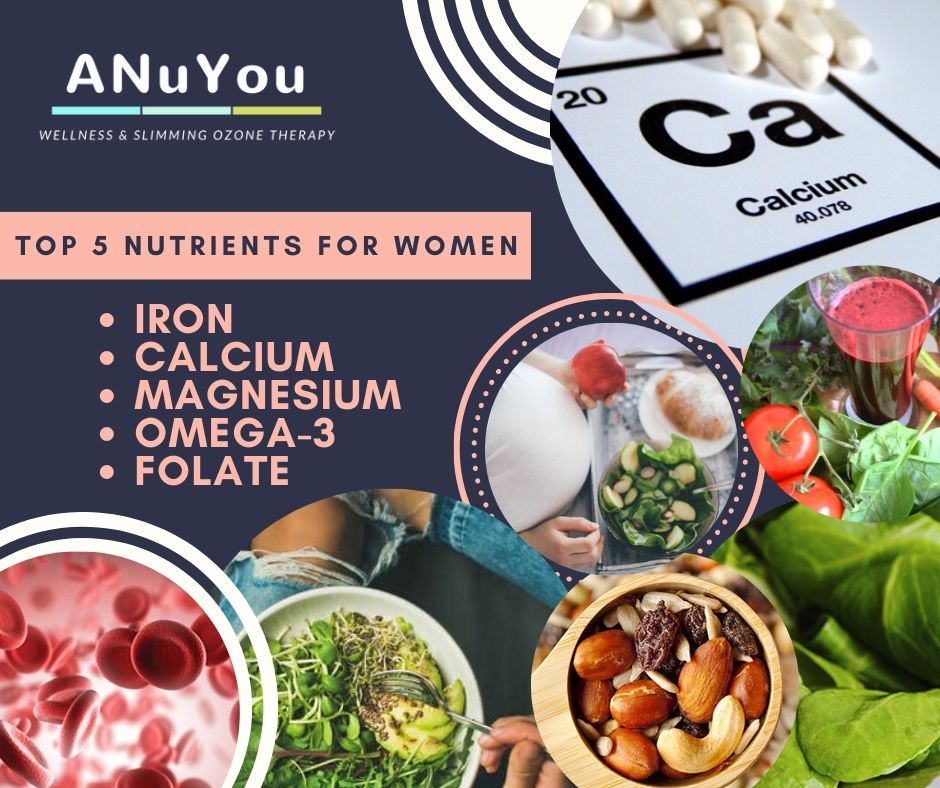ANuYou Wellness and Slimming Centre
- Unit 5 Ground Floor Left, Cambridge Office Park, 5 Bauhinia Street, Highveld Technopark, Centurion
- +27 72 565 7202

1. Iron
Women in their childbearing years need a lot of iron – 18 mg up until menopause and 27 mg during pregnancy. Iron deficiency is the most common deficiency in the United States. Women are at greater risk than men because of their reproductive cycle. Those with heavier cycles are at an even greater risk. Symptoms of iron deficiency include weakness, fatigue, low body temperature, frequent illness, problems concentrating and poor appetite.
2. Calcium
Over nine million women suffer from osteoporosis and most of them are postmenopausal. It is estimated that around 34 million women have bone loss which can lead to osteoporosis. That’s why calcium is so important for women. For postmenopausal women, the recommended intake of calcium is 1,200 mg per day, but 85% of them don’t come close. Additionally, your body needs vitamin D to absorb calcium, and vitamin D is another one of those nutrients that almost everyone is low on. Remember not to take calcium alone – we need Vit D and Magnesium to absorb Calcium properly.
3. Magnesium
Around 3/4 of the general population doesn’t get enough magnesium. That’s too bad because there are studies that show that magnesium may relieve some symptoms of PMS: depression, anxiety, etc. It may also enhance fertility, lead to a healthier pregnancy and aid in both bone health and the absorption of calcium.
4. Omega-3
You’ve probably heard by now that omega fatty acids are essential because the body can’t produce them on its own. So it’s important to make sure they are a regular part of your diet. First off, they are good for the heart, the skin and the brain. For women, omega-3 fatty acids have been shown to help fight against bone loss and osteoporosis. Additionally, low omega-3 blood concentrations have been linked to increased menstrual pain.
5. Folate
Folate/Folic acid is an essential B vitamin that the body needs to make DNA and for cell division. Many common foods are fortified with folic acid (synthetic folate) because low levels have been linked to birth defects of the brain and spine. Therefore, it is of the utmost important that future moms get adequate amounts of folate in their diets. Beet juice is another great source of folate, too!


